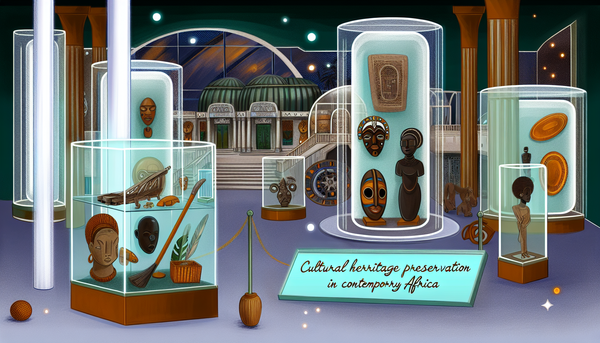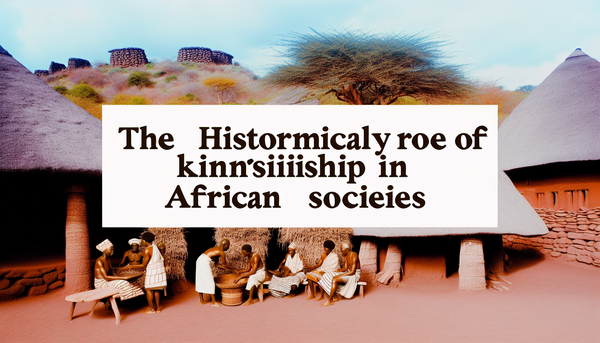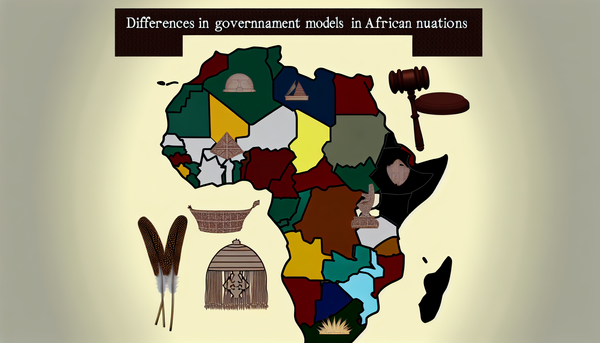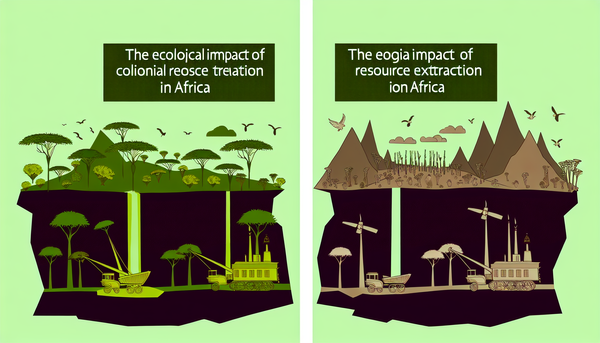The Evolution of African Nationalism and Its Global Context
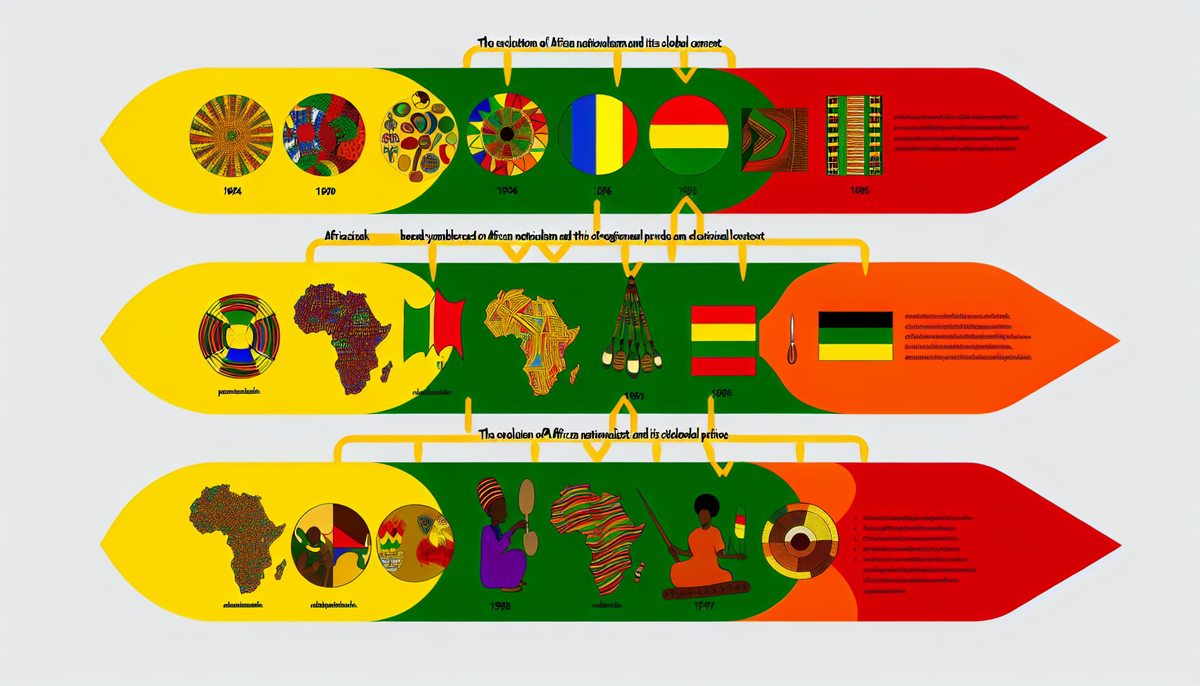
Early Influences and Origins of African Nationalism
African nationalism can trace its roots to various factors that shaped the continent's political landscape. The initial influences can be seen in the resistance to colonial rule, where African leaders and communities fought against oppressive foreign powers. Additionally, the rise of Pan-African movements, such as the Pan-African Congress and the formation of the African Union, played a crucial role in fostering a sense of unity among African nations.
Furthermore, the emergence of African intellectuals and political leaders, such as Kwame Nkrumah and Jomo Kenyatta, who advocated for self-determination and independence, significantly influenced the early development of African nationalism. The desire for freedom from colonial dominance and the pride in African heritage and culture also fueled the growth of nationalist sentiments across the continent. These early influences set the stage for the evolution of African nationalism and its eventual impact on the global stage.
Pan-African Movements and their Ideologies
Pan-African movements have played a pivotal role in shaping the ideology and trajectory of African nationalism. These movements emphasized the unity and solidarity of all people of African descent, regardless of their geographical location. The idea of Pan-Africanism was championed by influential figures like Marcus Garvey, W.E.B. Du Bois, and later leaders such as Kwame Nkrumah and Haile Selassie.
Central to Pan-African ideologies were concepts of self-determination, racial equality, and the rejection of colonialism and imperialism. The movements sought to challenge the notion of racial inferiority propagated by colonizers and to promote a sense of pride in African heritage and culture. Pan-Africanism also advocated for the rights and liberation of African peoples from oppressive systems of governance.
Through various conferences, organizations, and publications, Pan-African movements fostered a sense of shared identity and common struggle among African nations and the African diaspora. The ideologies of Pan-Africanism continue to inspire movements for social justice and liberation across the globe, highlighting the enduring relevance of unity and collective action in the pursuit of African nationalism.
Colonial Impact and the Drive for Sovereignty
The colonization of Africa by European powers had a profound impact on the continent's societies, economies, and political systems. Colonial rule was characterized by exploitation, cultural suppression, and the imposition of foreign laws and governance, leading to widespread social injustice and inequality. This oppressive system fueled resistance movements and ignited the drive for sovereignty among African nations.
The experience of colonization highlighted the urgent need for Africans to assert their independence and reclaim control of their destinies. Leaders and activists emerged across the continent, rallying for self-governance and challenging the legitimacy of colonial regimes. Movements such as the Mau Mau Rebellion in Kenya and the Algerian War of Independence exemplified the fierce determination of African peoples to break free from colonial oppression and establish sovereign nations.
The struggle for sovereignty was not only a political endeavor but also a fight for dignity, equality, and self-determination. The legacy of colonial impact on Africa continues to shape the aspirations of nations striving for autonomy and the restoration of their cultural identities.
Major Figures and Their Contributions to Nationalism
Numerous influential figures have left a lasting impact on the development and advancement of African nationalism. Leaders such as Kwame Nkrumah of Ghana, Jomo Kenyatta of Kenya, and Nelson Mandela of South Africa played pivotal roles in advocating for independence, unity, and liberation on the African continent.
Kwame Nkrumah, Ghana's first president, was a staunch Pan-Africanist who emphasized the importance of African unity in the fight against colonialism and imperialism. He provided a blueprint for self-governance and inspired nationalist movements across Africa. Jomo Kenyatta, the first president of Kenya, led the country to independence and promoted the preservation of Kenyan culture and traditions amidst colonial influences.
Nelson Mandela, a symbol of resilience and reconciliation, dedicated his life to ending apartheid in South Africa and fostering a democratic society based on equality and justice. These major figures in African nationalism not only led their countries to independence but also inspired generations with their unwavering commitment to freedom and social progress.
Independence Movements Across the Continent
The mid-20th century marked a transformative period in African history, characterized by a wave of independence movements sweeping across the continent. Countries such as Ghana, Kenya, Algeria, and many others embarked on struggles for self-rule and liberation from colonial powers. These movements were driven by a collective desire to reclaim autonomy, dignity, and sovereignty.
Ghana, formerly known as the Gold Coast, became the first sub-Saharan African nation to gain independence from British colonial rule in 1957, under the leadership of Kwame Nkrumah. The Mau Mau Rebellion in Kenya, the Algerian War of Independence, and similar movements in countries like Nigeria and Zimbabwe, demonstrated the widespread determination of African peoples to break free from oppressive colonial systems.
Independence movements were marked by varying degrees of resistance, negotiation, and armed struggle, reflecting the diverse strategies employed by different nations in their quest for freedom. The successful attainment of independence by numerous African countries not only reshaped the political map of the continent but also inspired liberation movements globally, underscoring the enduring legacy of these struggles for self-determination.
African Nationalism in the Modern Era
In the modern era, African nationalism continues to evolve and shape the political landscape of the continent. While many countries have achieved independence from colonial rule, the challenges of nation-building, governance, and economic development persist. African nationalism in the contemporary context emphasizes issues of democracy, human rights, social justice, and pan-African solidarity.
Leaders such as Julius Malema in South Africa, Yoweri Museveni in Uganda, and Amina Mohammed in Nigeria represent a new generation of African nationalists advocating for inclusive development, anti-corruption measures, and sustainable progress. The African Union, established in 2001, serves as a platform for promoting unity, peace, and development among African nations, reflecting the continued relevance of pan-African ideals.
However, the persistence of conflicts, economic disparities, and governance issues highlights the ongoing struggle to fully realize the aspirations of African nationalism. The youth-led movements, civil society organizations, and grassroots initiatives emerging across the continent signal a renewed commitment to advancing the principles of African unity, self-determination, and prosperity in the modern era.
Comparative Analysis with Global Nationalist Movements
African nationalism shares similarities and distinctions with global nationalist movements in the context of historical struggles for independence, cultural preservation, and self-determination. While African nationalism has been deeply rooted in the fight against colonialism and imperialism, global nationalist movements have manifested in various forms across different regions.
In Europe, nationalist movements have often focused on ethnonationalism, emphasizing cultural, linguistic, and historical identities as markers of nationhood. In contrast, African nationalism has sought to transcend colonial borders and unite diverse ethnic groups under a common African identity.
Both African and global nationalist movements have grappled with the complexities of balancing national sovereignty with international cooperation and globalization. The rise of populist nationalism in countries like the United States, India, and Brazil underscores the enduring appeal of nationalist rhetoric in shaping political discourse and policies.
Despite these similarities, African nationalism stands out for its strong emphasis on pan-African solidarity and collective liberation from external domination. The legacy of African nationalist movements continues to inspire struggles for independence and social justice worldwide, highlighting the interconnectedness of nationalist movements across the globe.
